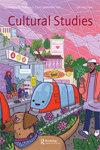自动化媒体与商业民粹主义
IF 1.2
3区 社会学
Q1 ANTHROPOLOGY
引用次数: 2
摘要
摘要本文探讨了在线自动化信息管理日益重要的作用与我们所说的“商业民粹主义”的兴起之间的联系。我们援引这个词来指民粹主义作为一种营销工具——例如,一种销售营养补充剂或生存主义商品的方式——与迎合作为消费者的公民(其自由被纳入个人品味的个人登记册中,不受公民关切或约束)的政治策略的融合。在这种背景下,我们以唐纳德·特朗普的政治崛起为例,这也许并不奇怪,尽管与他的特殊特质不无关系,但它表明了社交媒体的自动化管理如何与商业民粹主义的激进崛起相一致。这种分析的目的是考虑超商业主义与社交媒体的形式属性的结合如何导致两极分化和阴谋论的相互关联的政治病态。算法策划迎合的以消费者为导向的个人品味模式凸显了“社交”媒体的悖论:它们承诺通过取代或重新定义基本的社交来增强社交。将社会决策和信息转移到商业、自动化的新闻和信息管理系统上,强化了这种个人主义,助长了导致这种个人主义的各种形式的误解。本文章由计算机程序翻译,如有差异,请以英文原文为准。
Automated media and commercial populism
ABSTRACT This article considers the link between the increasingly important role of automated information curation online and the rise of what we call ‘commercial populism’. We invoke the term to refer to the convergence of populism as a marketing tool – a way of selling, for example, nutritional supplements or survivalist merchandise – with political strategies that cater to the citizen as consumer (whose freedoms are framed in the individual register of personal taste unfettered from civic concerns or constraints). Perhaps unsurprisingly in this context, we draw on the example of Donald Trump's political rise, which while not unrelated to his particular idiosyncrasies, demonstrates how the automated curation of social media aligns itself with what the aggressive rise of commercial populism. The goal of such an analysis is to consider how the combination of hyper-commercialism with the formal attributes of social media contributes to inter-related political pathologies of polarization and conspiracy theory. The consumer-oriented model of personal taste catered to by algorithmic curation highlights the paradox of ‘social’ media: they promise to enhance the social by displacing or reframing it fundamental a-social. The offloading of social decisions and formation onto commercial, automated systems for curating news and information reinforces this version of individualism, contributing to the forms of misrecognition that enable it.
求助全文
通过发布文献求助,成功后即可免费获取论文全文。
去求助
来源期刊

Cultural Studies
Multiple-
CiteScore
3.50
自引率
6.70%
发文量
0
期刊介绍:
Cultural Studies is an international journal which explores the relation between cultural practices, everyday life, material, economic, political, geographical and historical contexts. It fosters more open analytic, critical and political conversations by encouraging people to push the dialogue into fresh, uncharted territory. It also aims to intervene in the processes by which the existing techniques, institutions and structures of power are reproduced, resisted and transformed. Cultural Studies understands the term "culture" inclusively rather than exclusively, and publishes essays which encourage significant intellectual and political experimentation, intervention and dialogue.
 求助内容:
求助内容: 应助结果提醒方式:
应助结果提醒方式:


